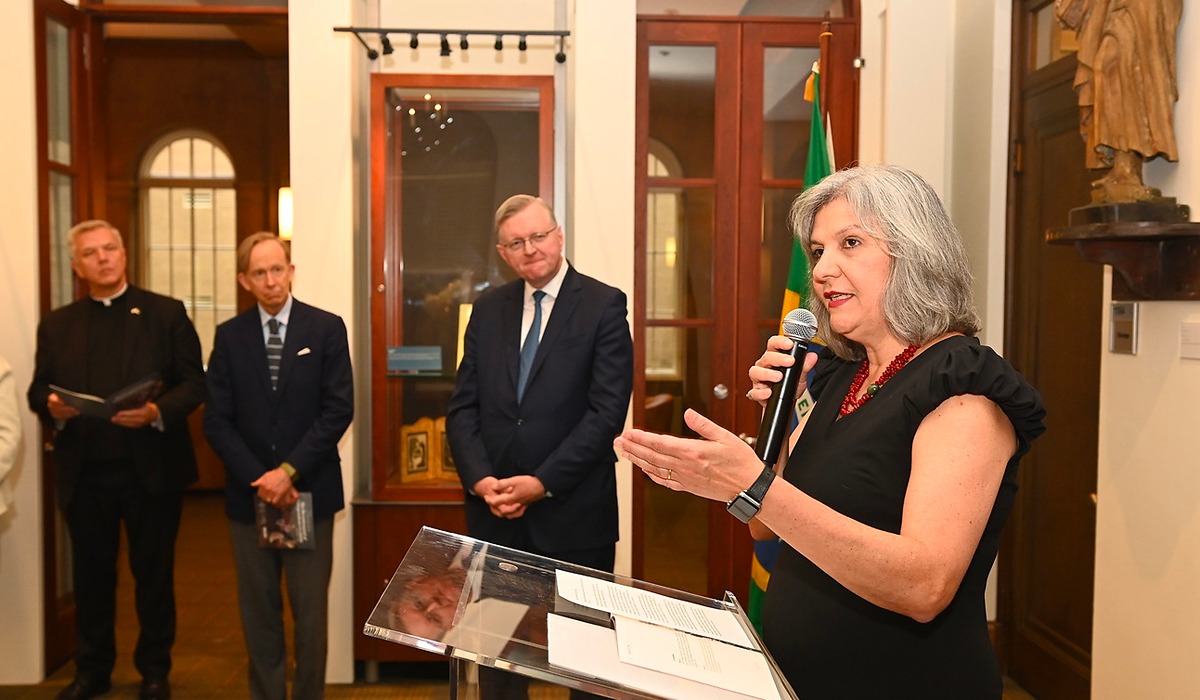

Representatives from the Brazilian and Portuguese embassies to the United States came to campus Sept. 8 to open an exhibit celebrating the bicentennial of Brazilian independence from Portugal.
The exhibit, which will be open to the public until Sept. 30, is a collaboration between the Brazilian Embassy and the Oliveira Lima Library, which is Catholic University's special collection dedicated to the history and culture of Brazil and Portugal. The library is named after Brazilian diplomat Manoel de Oliveira Lima, who donated his collection of books and other historical documents to the University in 1916.
“I am truly honored to be here with you this afternoon to open this exhibition of the Oliveira Lima collection,” said Nestor Forster Jr, Brazil’s ambassador to the United States. “What is housed in the Oliveira Lima Library is nothing short of the greatest cultural fragment of Brazilian culture in the United States. … It’s truly magnificent.”
After more than three centuries of Portuguese rule, Brazil became independent in 1822 when Pedro I, son of Portuguese king John VI, declared himself the first emperor of Brazil. The exhibit features a collection of documents and art important to the history of Brazilian independence, including the manifest of independence and the proclamation of independence, both signed by Don Pedro I; the first Brazilian Constitution, dated from 1924; and the 1825 Treaty of Rio de Janeiro, which officially recognized Brazil’s independence.
Among other significant pieces at the exhibit is a 1901 painting of John VI by Henrique Bernardelli, a Brazilian painter and friend of Oliveira Lima. The display also includes four pamphlets, publicly displayed for the first time, that influenced the birth of Brazilian independence. They belong to a collection of more than 100 pamphlets published between 1817-1822 that are digitally available on the Oliveira Lima Library website, a portal that includes about one million pages.
“The Library has a large collection of this period of Brazil’s history and it was hard to select what could be in this exhibit,” said Duilia de Mello, vice provost of global strategies. “But we chose carefully every single piece you see here.”
During his remarks, Ambassador Forster renewed the commitment of the Brazilian Embassy to the library “as we move on in our third century of existence. Congratulations on your great work and on a great exhibition.” While celebrating 200 years of Brazilian freedom from Portugal, Ambassador Forster recognized the importance of Portuguese culture for Brazilians.
“We appreciate what Portugal is, not only our beautiful Portuguese language but all the rich cultural heritage that comes with it and we cherish that, we want to promote that friendship, and I think that was the main goal for Oliveira Lima,” Ambassador Forster said.
De Mello presented Livia Lopes, director of the Institute for Latin American and Iberian Studies, as the new director of the Oliveira Lima Library.
“The Oliveira Lima collection is a tribute to the history of Brazil, the history of Portugal. And it is established here in the United States … to strengthen ties between those three countries: Brazil, Portugal and the U.S.,” Lopes said.